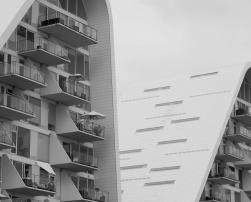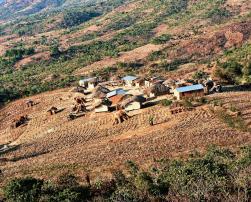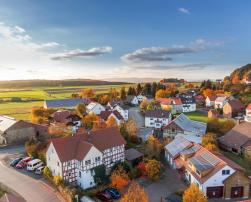
Green building and SDGs
This paper explores how green buildings contribute to achieving the UN's Sustainable Development Goals, focusing on renewable energy, net-zero consumption, and their positive environmental, social, and economic impacts.

Leadership figures and cooperation in sustainable building
This study highlights the crucial role of the 'green project champion' in driving innovation and collaboration for successful implementation of Green Building Certificates in the construction industry.

10 principles for scaling up local retrofit initiatives in the EU
The paper outlines 10 principles for successfully launching local retrofit initiatives, emphasising community engagement, strategic planning, and the use of grants, while also discussing the EU's efforts to support scalable, collective energy home retrofits.

The MultiHome Integrated Home Renovation Service in Bulgaria
The MultiHome Integrated Home Renovation Service provides comprehensive support for energy-efficient home renovations in the Plovdiv region, offering consultations, technical guidance, and financial mediation to vulnerable households and communities, with a focus on sustainability through local collaboration.

Empowering sustainable construction practices in Malawi: insights and drivers for infrastructure development
This study explores the implementation of sustainable construction practices in Malawi, highlighting economic sustainability and key drivers such as global trends, social benefits, and access to green technologies.

Future weather dataset for building energy simulations and climate resilience
The dataset provides future weather files for energy simulations, including TMYs and heatwave scenarios for 2020, 2050, and 2080, supporting climate resilience and energy efficiency studies.

Guida ENEA e Assoimmobiliare per l'efficienza energetica degli uffici
ENEA e Assoimmobiliare hanno creato una guida per migliorare l’efficienza energetica degli uffici italiani, con strumenti per diagnosi e interventi che potrebbero risparmiare 50 GWh/anno.

Addressing the skills gap in the engineering sector
ENGINEERS 4 EUROPE has released the European Engineering Skills Strategy to address the skills gap in engineering, offering recommendations for education and industry, with a focus on holistic skill development and the green and digital transitions.

Sufficiency in the building sector: for the EU Whole Life Carbon Roadmap
This report highlights 'sufficiency' in the building sector to reduce emissions and address housing shortages, but notes challenges such as economic barriers, limited data, and the need for greater administrative capacity to support these initiatives.

Empowering local energy transitions: the role of municipalities in supporting energy communities across Europe
This paper analyses interviews with local authorities across Europe to explore how energy communities are supported and the role municipalities play in empowering local energy transitions through various legal and policy frameworks.